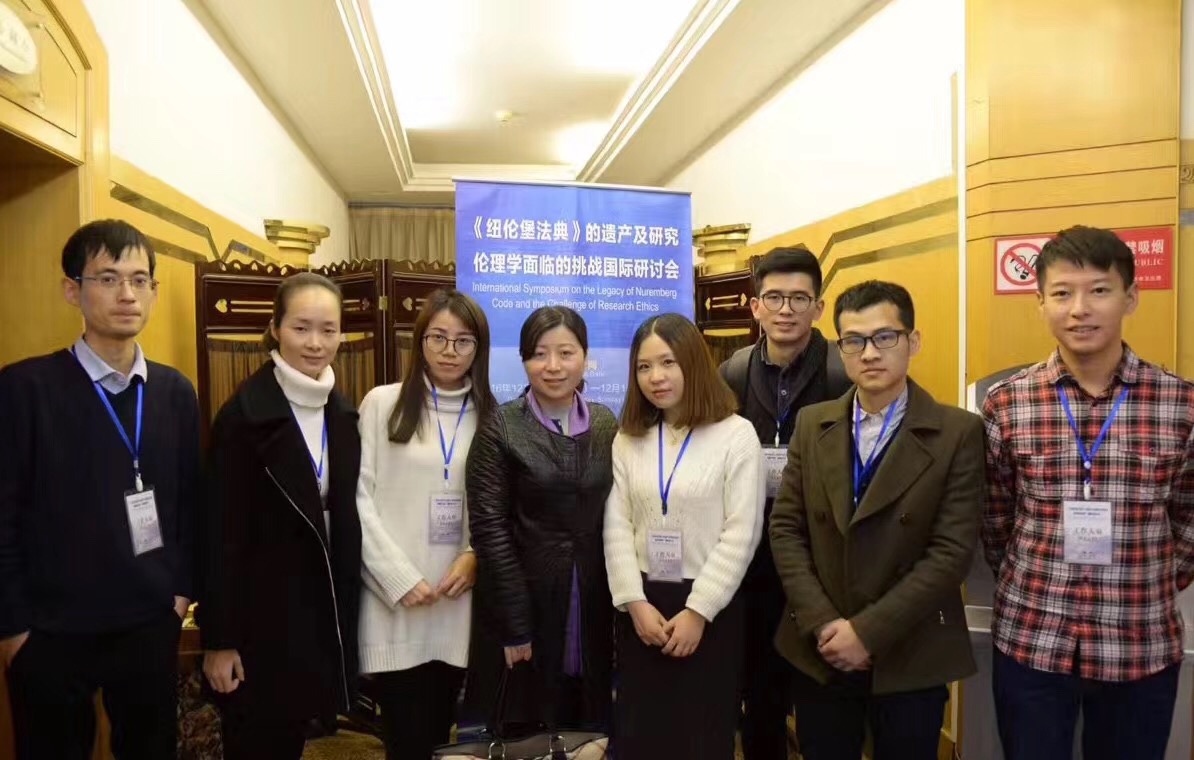News.hust.edu.cn (Reporter: Wang Quan) At the end of 2018, once the event "human embryo gene-edited baby" was reported, a wide range of concerns was immediately triggered in the academic and social circles at home and abroad. With the development of science and technology, there are more and more cases proving that science and technology, while benefiting human beings, may also put us in danger. How do we prevent this from happening again? How to manage the double-edged sword of science and technology?
On May 9, the commentary “Reboot Ethics Governance in China”, a lengthy article on science and technology ethics and governance policy, was published on the international top academic journal Nature online, and professor Lei Ruipeng, the executive director of center for bioethics, department of philosophy, school of humanities, was the first author, and professor Qiu Renzong, director of center for bioethics, was the corresponding author.
As the first policy commentary published in Nature in the field of humanities in China, it analyzed the typical ethics governance problems in fields of China's scientific and technological innovation, research and application, discussed the urgency and necessity of reconstructing China's current scientific and technological governance and regulatory system, and put forward policy suggestions. The publication of this article in the Comment column of Nature, triggered the academic research on the development of science and technology and ethics governance, at the same time expanded the academic and social impact of Chinese humanities in the world, marked the breakthrough of the international influence of our university in interdisciplinary research on science and technology and humanities, and was also a milestone in the history of the development of liberal arts in our university.
The article pointed out that at present, China's governance over scientific and technological innovation, research and development and application was insufficient, even weak and fragmented. In the face of practical problems and arguments, too much emphasis on cultural differences ignored the negative impact of science and technology. For example, the case of "gene-edited baby" not only violated international ethical norms, but also relevant regulations of Chinese government and traditional medical ethics norms. This was not only related to the improper intervention of commercial capital, but also reflected the phenomenon that a few scientists were eager for quick success and instant profits caused by the improper reward system in our country.
In order to prevent the recurrence of such incidents, Lei Ruipeng put forward important suggestions from six aspects in the article.
The first was to strengthen the supervision. Before the innovation, research, development and application of gene editing, stem cells, mitochondrial transfer and other biological technology, the departments of government should formulate ethical norms and interim management measures with the assistance of scientists and bioethicists.
Secondly, a national registration institution should be established. The research protocol, ethical review and approval of the above-mentioned technology in clinical trials and the basic information of scientific researchers and institutions must be registered in a national registration institution, open and transparent for reference, and the government should also establish a strict access system.
Thirdly, the National Health Commission should be responsible for supervising all public and private research centers for gene editing and clinical centers for in vitro fertilization in China, so as to determine the progress, ethical review and approval, and informed consent of clinical trials. All staff of the research centers for gene editing and clinical centers for in vitro fertilization shall be trained in research ethics and clinical ethics.
The fourth was to unblock related research information channels. Chinese academy of sciences and Chinese academy of medical sciences can provide related rules and regulations of emerging technologies, appropriate informed consent procedure, as well as the latest development of science and technology in this field for research institutions across the country, and also can provide sources for those who interested in participating in the experiment, which was helpful for researchers to find illegal behaviors in a timely manner.
Fifthly, the government should enhance the bioethics education and training. The government should support universities and research institutions to strength the training of bioethics (including clinical ethics, research ethics and public health ethics), as well as the professional spirit of science and medicine. Students in the relevant majors, all researchers involved in the research, media personnel covering science and technology, and teachers and students in the department of journalism are required to receive relevant training and continuing education.
Sixthly, we should strictly prevent discrimination against the disabled, which was a necessary condition for allowing the development of genetic editing. The government should take effective measures to oppose and prevent discrimination against the disabled, especially, the disabled who was classified as “the dysgenic” by a small number of scholars.

Professor Lei Ruipeng (forth from left in the photo)
Professor Lei Ruipeng has taught in school of humanities since 2001, and commits to the research on the philosophy of life sciences and life ethics. She worked as a fellow of Harvard University " International Biomedical and Health Research Ethics " (2003-2005) and vice president of Asian society for bioethics (2010-2015), and presided over more than 10 projects such as humanities and social sciences planning project of Ministry of Education, major projects of the National Social Science Fund of China and international cooperation projects. She is currently the vice chairman and secretary general of Chinese Society for Bioethics.
Links to the article:https://www.nature.com/articles/d41586-019-01408-y
Links to Chinese translations:http://humanity.hust.edu.cn/info/1088/2690.htm
